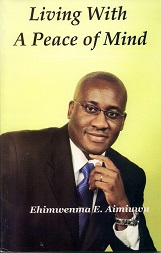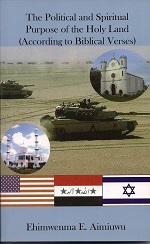 |
|
ALL AFRICAN PEOPLE'S REVOLUTIONARY
UNIFICATION PARTY
23074 Oakland, CA 94623
(415) 789-7360
E-mail: AAPRUP2@aol.com
Website: www.aaprup.org
It can be used to inspire or demobilize the people.
History in the hands of the masses of the people will be guided by the love
of justice and truth. The masses of the people have never been the oppressor;
they have been the oppressed. The masses have no reason to hide the truth, but
someone who has oppressed the people does have a reason to hide the truth.
"All people of African descent, whether they live
in North or South America, the Caribbean, or any other part of the world are
Africans and belong to the African Nation."
"The core of the Black Revolution is in Africa,
and until Africa is united under a socialist government, the Black man throughout
the world lacks a national home. It is around the African people's struggles
for liberation and unification that African or Black culture will take shape
and substance. Africa is one continent, one people, one people, and one nation."
These two quotes by President Kwame Nkrumah from
one of his books, CLASS STRUGGLE IN AFRICA, are an example of how history can
be a guide to the future. The capitalist countries of Europe; France, England,
Germany, Portugal, Italy, Belgium and the United States met Nov. 1884 - Feb.1885
in Berlin, Germany and carved up Africa among themselves into the present borders,
the more than 50 so-called countries that make up the map of Africa. Fifteen
years later in London, England July 23-25, 1900 our people held the first Pan-African
Conference. This shows that our people have never accepted the division of Africa.
The Fifth Pan-African Congress in Manchester, England intensified the battle
for the liberation of Africa in the postwar period in 1945.
|
|
The Political & Spiritual Purpose of the
Holy Land
 |
| |
|
This congress called for the organization of mass
political parties to struggle for a socialist United States of Africa and said
we will use force (armed struggle) if necessary. From this congress came the
call for every African of goodwill to join an organization that is working for
the liberation of African people. If in 1996 you are an African and you are
not in an organization then you are 50 years late and if you want to be a responsible
African you must get into an organization because even bad organization is better
than no organization. Any African outside of organization is being irresponsible
and is letting down the African nation. Our people used the Fifth Pan-African
Congress as a springboard to wage one of the most relentless struggles against
colonialism that the world has ever witnessed. From 1957 to present we put out
the French, British, Italians, Portuguese, Germans, and the Belgium, etc. In
some cases such as Algeria, Guinea Bissau, Angola, Namibia, Mozambique, Zimbabwe,
and Azania (South Africa), African people took political independence through
armed struggle.The rebellions in the U.S. in 1965 & 1992 in Los
Angeles, CA, Detroit, MI in 1967, the 210 cities we burned down between April
and July in 1968 after Martin Luther King was murdered and the rebellions in
England were all part of the armed struggle for African independence. When African
countries became independent in the 1960's they became part of the UN and begin
to put pressure on the U.S. government about the ill treatment of African people
living in the U.S. And it was in this atmosphere along with African people in
the streets of the U.S. fighting in the civil rights movement that forced the
U.S. Government to make some concessions in the 1960s and 70s. In Brazil, African
people could not even have a political meeting before our people in Guinea Bissau,
Mozambique, and Angola defeated the Portuguese in Africa through armed struggle.
This is a perfect example of how what happens in Africa affects African people
all over the world.
|
|
|
In the Republic of Guinea in West Africa, in the
dead of the night of November 22, 1970 hundreds of Portuguese troops and mercenaries
serving the interest of NATO (North Atlantic Treaty Organization) came ashore
on Portuguese warships at various points along the coast of Conakry, Guinea.
Many of the regular army troops were in the interior of the country doing agricultural
work at the time. Members of the people's army, the militia, workers, party
militants of the PDG, and the youth, all courageously fought the invaders of
Africa. The enemies of Africa tried to capture the radio station and airport
but the people beat them back. The enemy also organized land-based attacks from
Senegal and the Ivory Coast. It was only a short time before President Ahmed
Sekou Toure was speaking on the radio to the people informing them about the
battle and he called on all those who are aware of national dignity and the
historical interest of Africa to rise up together with courage and confidence
to crush the enemy decisively. Three hundred citizens of Africa died defending
African soil.
|

Nigerians at Lunch |
|
The army troops who were coming from the countryside
with arms in hands did not get to Conakry until the evening time. By 10:30 p.m.
the people held all the strategic points in Conakry. President Toure said, "We
have no better defenders than ourselves." There were more landings of mercenaries
and fighting went on the next day and night before the invaders were in full
retreat, defeated by Africa. Many countries in Africa responded to President
Toure's appeals for help, Nigeria and Sierra Leone offered to put their armies
at Guinea's disposal, Egypt offered airborne troops, Libya and Algeria sent
arms and ammunition, in Somalia a register was opened for volunteers to fight
in Guinea, the Secretary General of the OAU reported that the 41 member-states
of the OAU was in complete solidarity with Guinea, Tanzania sent a heavy financial
contribution, students in the Ivory Coast and in other places in Africa organized
demonstrations in support of Guinea. Africans all over the world gave aid and
assistance to the war victims. This was a truly a Pan-African response. At the
time of the invasion Guinea-Bissau was using Guinea as a base to wage armed
struggle against the Portuguese for independence. President Nkrumah was also
living in Guinea as the co-president of Guinea after the CIA had overthrown
Nkrumah's government in Ghana in 1966.
How we interpret history can either inspire us
or demoralize us. We mentioned earlier that African people between April and
July of 1968 burned 210 cities across the U.S. In Feb. 1965 the enemies of the
African revolution murdered Malcolm X, but there was not the same response compared
to when Martin Luther King was killed. Why? Some people would say it is because
we liked Martin Luther King better, but we say the difference was the consciousness
of the people in 1968 verses 1965. If Martin Luther King had been killed in
1965 as opposed to 1968 there would have been the same response as when Malcolm
X was killed. If Malcolm were killed in 1968 then our people would have burned
the cities of the U.S. just as we did when Martin Luther King was killed. The
difference is not what we thought about the two men. There was a higher level
of consciousness in 1968 than 1965. Some people think that there was no change
in the consciousness of the people and that interpretation of history can be
discouraging and work to keep us in chains. When we know that we are moving
forward all the time that interpretation of history will inspire us to fight
even harder for our liberation. HISTORY IS A WEAPON!
|
![]()